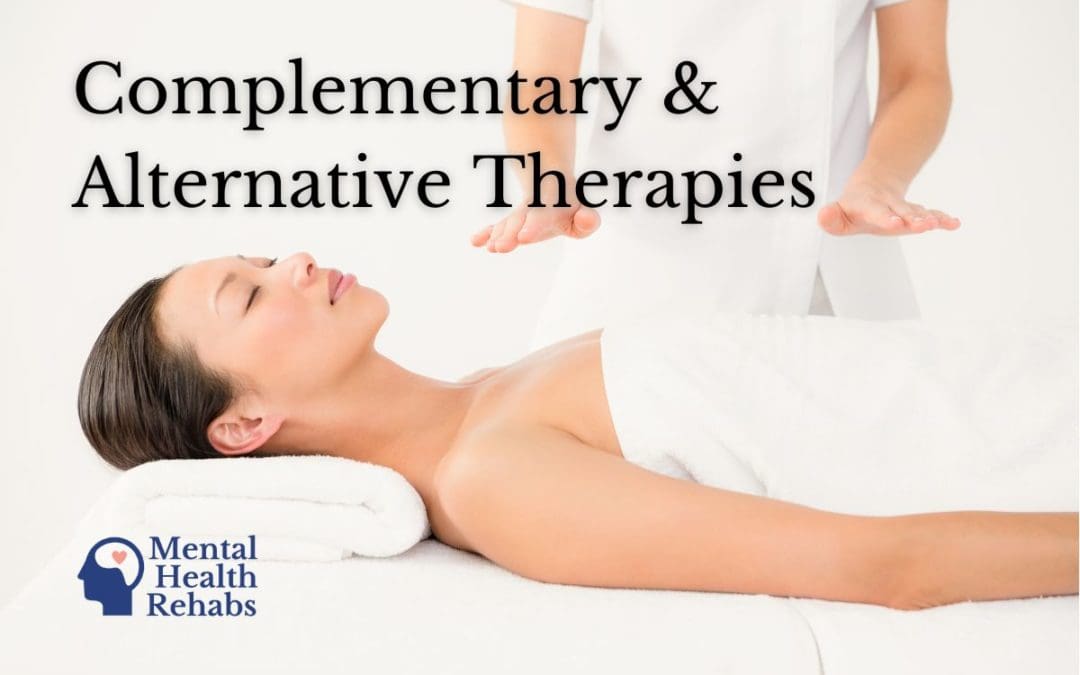One size rarely fits all, especially when it comes to healthcare and wellness. Just as differences in height, weight, body composition, and musculature can affect how a doctor might approach treatment for a physical health issue, there are plenty of invisible differentiating factors like hormonal levels, personality, and chemical balances in the brain that could determine what treatment would be best for treating mental health issues. If you’ve tried traditional mental health treatment to no avail, you might want to consider complementary and alternative therapies.
What’s considered “alternative therapy”?
Alternative therapy is considered anything other than the “traditional” Western approach to wellness (ironic as many treatments that are considered alternative are ones that have been practiced for hundreds of years and are deeply rooted in the traditions and practices of ancient cultures).
Whereas traditional Western medicine places emphasis on treating symptoms and using pharmaceutical drugs, alternative therapies often use seemingly unrelated mediums to restore a person’s health, overcome hardship, and gain both greater understanding and control of themselves.
These alternative therapies are typically considered part of a holistic approach, meaning they don’t just address the health issue at hand, but the mental, physical, emotional, social, and spiritual well-being of a person. The philosophy behind this approach is that if any of those needs aren’t being met, the resulting imbalance can lead to health and behavioral issues.
What is complementary therapy?
Holistic healthcare providers recognize that there’s a time and place for traditional medicine like prescription drugs and other types of formal medical intervention. Similarly, science and Western medicine have seen real, quantifiable benefits from holistic practices.
As such, many medical practitioners and healthcare facilities don’t view healthcare as an ‘either-or’ situation (traditional or alternative). Instead, they recognize that a person can benefit greatly by being a recipient of both approaches to wellness. Complementary therapy is describing an approach to therapy, rather than a specific technique or practice.
Types of alternative therapy for mental health
There are dozens of different types of complementary and alternative therapies. Many may include activities you do on a regular basis as part of a healthy routine. This includes things like yoga and meditation, exercise, expressing yourself musically or through visual arts, or bonding with animals. Below are a few examples, but this is by no means an exhaustive list.
Acupuncture
An ancient Chinese treatment where ultra-thin needles are inserted at specific points on the body. Practitioners believe the needles can facilitate healing by stimulating the nerves to produce natural pain-relieving endorphins. It’s a popular alternative therapy for treating both physical and mental illnesses such as depression.
Animal Exposure
The companionship of four-legged friends can do wonders for our mental health. They offer unconditional and non-judgemental affection that allows many people to relax and focus on positive feelings. Even just short periods of exposure to cuddly creatures can decrease stress, lower blood pressure, and even increase positive social feelings.
Aromatherapy
The plant extracts known as essential oils are used for massages, baths, or for smelling to promote relaxation and stress. Research is limited, but shows promising results as aromatherapy being a potential alternative therapy for depression.
Creative Expression
Visual and performing arts are creative outlets that can boost mood, decrease stress, and provide a productive distraction. People with mental illnesses tend to struggle to communicate through speech or the written word, but mediums like painting, dancing, singing, and playing an instrument offer a judge-free form of expression that can impart many health benefits.
Herbal remedies
Herbal remedies, also sometimes referred to as herbal medicines or supplements, are substances derived from plants. Popular things you’re likely already familiar with include chamomile, ginkgo biloba, echinacea, and ginseng, to name a few. Many of these have been used for thousands of years throughout history. Many are scientifically proven health benefits such as lowering blood pressure and stress or improving memory or the immune system.
Hypnotherapy
Hypnosis isn’t merely the stuff of magic shows. Hypnotherapy is a common complement to traditional talk therapy for treating mental illnesses such as anxiety, depression, phobias, and PTSD.It helps to work through difficult emotions such as grief, loss, and stress. In this deeply relaxed trance state a person can be more open to changing behavior or understanding their subconscious thoughts.
Light Therapy
Humans are hardwired to seek the sun, just consider our circadian rhythms. Light therapy is the use of artificial light (of specific intensities) to emulate the sun’s effect on the brain and boost serotonin levels.
Find a Holistic Mental Health Practitioner Near You
Mental illness manifests itself differently with each individual. Just as how it presents or how it affects a person will vary, so too can the efficacy of different treatments. Talk to a professional alternative therapist today.

